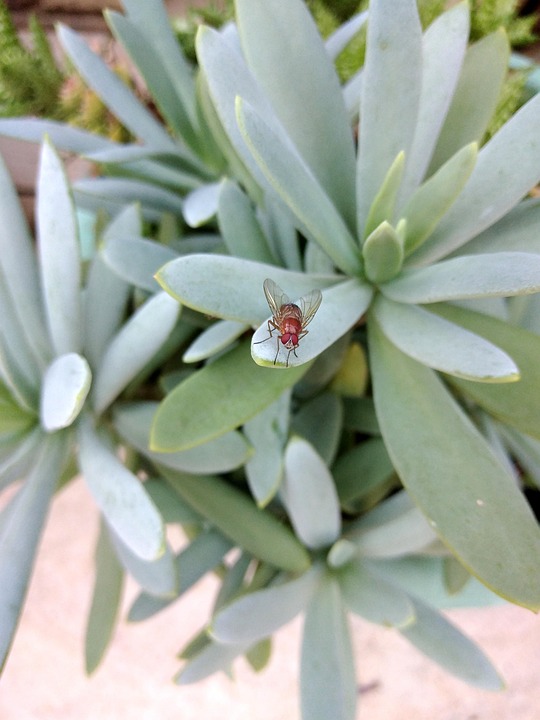The Battle of the Bugs: Conquering Common Garden Pests
Gardening can be a rewarding and relaxing hobby, but it also comes with its fair share of challenges. One of the biggest challenges that gardeners face is dealing with pests that can wreak havoc on their plants. From aphids to caterpillars, there are a variety of bugs that can cause damage to your garden if left unchecked. In this article, we will discuss some common garden pests and how to conquer them effectively.
Identifying Common Garden Pests
Before you can effectively combat garden pests, it is important to first identify them. Some common garden pests include:
- Aphids: These small, pear-shaped insects can be green, black, or red in color. They feed on plant sap and can cause leaves to curl and distort.
- Caterpillars: Caterpillars are the larval stage of moths and butterflies. They can chew through leaves and stems, causing significant damage to plants.
- Slugs and Snails: These slimy creatures can munch on leaves and stems, leaving behind a trail of slime.
- Spider Mites: These tiny pests can suck the sap from plants, causing leaves to turn yellow and drop off.
- Whiteflies: These tiny insects resemble tiny moths and can cause damage by feeding on plant sap.
Preventative Measures
One of the best ways to combat garden pests is to prevent them from infesting your garden in the first place. Here are some preventative measures you can take:
- Keep your garden clean: Remove debris and dead plant matter regularly to eliminate hiding spots for pests.
- Plant pest-resistant varieties: Some plants are naturally resistant to certain pests. Research which plants are less susceptible to common garden pests.
- Use row covers: Row covers can protect your plants from pests while still allowing sunlight and water to reach them.
- Encourage beneficial insects: Ladybugs, lacewings, and parasitic wasps are all natural predators of garden pests. Plant flowers that attract these beneficial insects to your garden.
Organic Pest Control
If preventative measures aren’t enough to keep garden pests at bay, there are several organic pest control methods you can try:
- Neem oil: Neem oil is a natural insecticide that can be effective against a variety of garden pests.
- Diatomaceous earth: Diatomaceous earth is a fine powder made from the fossilized remains of diatoms. It can be sprinkled around plants to deter pests.
- Garlic spray: Garlic is a natural insect repellent. Blend garlic cloves with water and spray it on plants to deter pests.
- Companion planting: Planting certain plants together can help repel pests. For example, planting marigolds near tomatoes can deter aphids.
Integrated Pest Management
Integrated Pest Management (IPM) is a holistic approach to pest control that combines preventative measures, organic pest control methods, and chemical treatments when necessary. Here are some key principles of IPM:
- Monitor pests: Regularly inspect your plants for signs of pest damage.
- Identify pests: Properly identify the pests in your garden so you can choose the most effective control method.
- Set action thresholds: Determine at what point pest damage warrants intervention.
- Implement control methods: Use a combination of preventative measures, organic pest control methods, and chemical treatments to combat pests.
- Evaluate effectiveness: Monitor the effectiveness of your pest control methods and make adjustments as needed.
Chemical Pest Control
While organic pest control methods are preferred by many gardeners, there are times when chemical treatments may be necessary. When using chemical pesticides, it is important to follow label instructions carefully and use them sparingly to minimize harm to beneficial insects and the environment.
Common Questions About Garden Pests
Here are some common questions about garden pests:
Q: How can I tell if my plants are being damaged by pests?
A: Look for signs of pest damage such as chewed leaves, distorted growth, yellowing leaves, and the presence of insects on your plants.
Q: What plants are most susceptible to garden pests?
A: Certain plants such as roses, tomatoes, and cucumbers are more susceptible to garden pests than others.
Q: Are there natural predators that can help control garden pests?
A: Yes, there are many natural predators of garden pests such as ladybugs, lacewings, and parasitic wasps.
Q: How can I attract beneficial insects to my garden?
A: Plant flowers that attract beneficial insects such as marigolds, daisies, and yarrow.
Conclusion
Garden pests can be a frustrating problem for many gardeners, but with the right knowledge and tools, they can be effectively managed. By identifying common garden pests, implementing preventative measures, using organic pest control methods, and practicing integrated pest management, you can conquer the battle of the bugs and protect your plants from damage. Remember to always monitor your garden for signs of pests and take action promptly to keep your garden healthy and thriving.
With these tips and strategies in mind, you can enjoy a bountiful and pest-free garden all season long.




















































